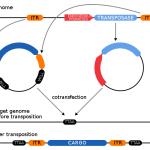Mark and I began our conversation by reflecting on historical medical achievements, highlighting the transformative impact of vaccines, especially the Salk polio vaccine, and the remarkable progress in open-heart surgery.
gene editing
"Genetic Engineering" (GE) has been practiced by humans for more than 10,000 years, first by selecting and hybridizing plants.
Below is the text of a letter sent to officials at London's UnHerd Club in anticipation of an appearance there on July 18 of anti-science, anti-technology, anti-innovation activist Vandana Shiva.
Because most of society is between two and six generations removed from farming, to many people that subject is largely terra incognita, literally and figuratively.
While he was the Prince of Wales, King Charles repeatedly demonstrated a pitfall of the sort of inbreeding that has plagued the royal families of Europe for centuries: feeblemindedness.
Last week I wrote about a study in the prestigious journal Science reporting that a majority of prospective parents favored selecting for fa
He Jiankui, an American-trained embryologist, spent three years in a Chinese prison. Now, recently re-emerged and seemingly rehabilitated, he has re-embarked on his work.
Here are the eleven from Nature, plus two bonus picks from me.
Scientists have known for many years that genetically engineered (GE) crops pose no greater risk to human health or the environment than their conventional counterparts.
Britain's anti-GMO groups are none too pleased following news that the UK is poised to allow farmers to grow a gene-edited tomato engineered to produce higher levels of vitamin D.











